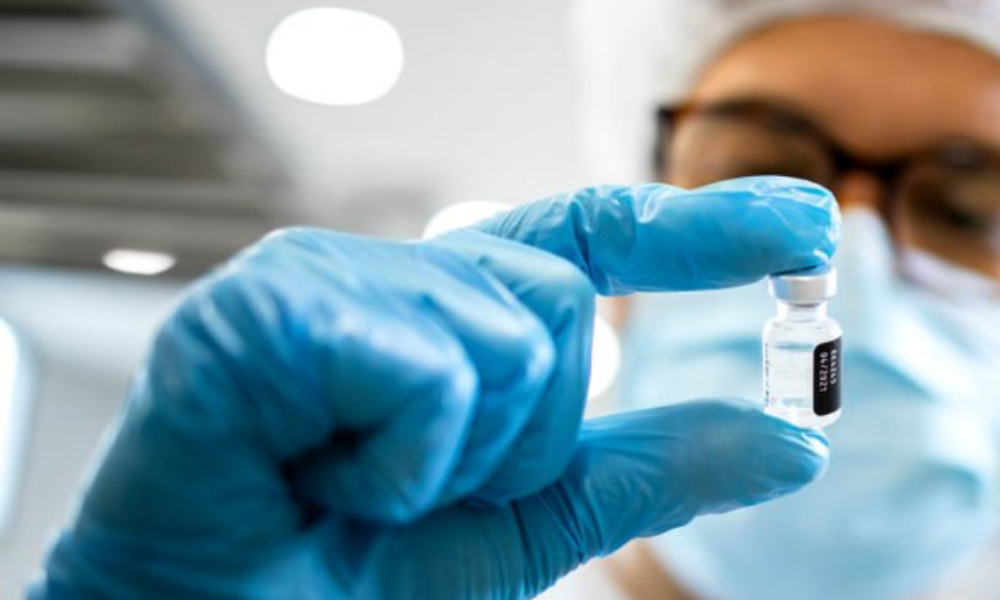
Every November, Lung Cancer Awareness Month provides an important opportunity to reflect on the lives affected by the UK’s deadliest cancer – and to spotlight progress that offers genuine hope for the future. This year, one development stands out as a potential game-changer: the world’s first clinical trial of a preventative lung cancer vaccine.
In a landmark move, scientists at the University of Oxford and University College London are preparing to test LungVax, an experimental vaccine designed to prevent lung cancer in people at high risk. Backed by up to £2.06 million in funding, this four-year phase I trial is expected to begin in summer 2026, signalling a major step forward in the global effort to intercept cancer before it develops.
Why a Preventative Vaccine Matters
Lung cancer accounts for 20% of all cancer deaths in the UK, making it the country’s leading cause of cancer mortality. Early detection remains one of the biggest challenges, with only 1 in 10 patients surviving 10 years or more after diagnosis. These sobering statistics highlight the urgent need for new ways to protect those most at risk.
Professor Sarah Blagden, co-founder of the LungVax project, underscores this mission:
“Lung cancer is lethal and blights far too many lives. Survival has been stubbornly poor for decades. LungVax is our chance to do something to actively prevent this disease.”
How LungVax Works
LungVax builds on the same vaccine platform used in the Oxford/AstraZeneca COVID-19 vaccine. It delivers genetic instructions that train the immune system to recognise abnormal lung cells that are beginning to change in ways that could become cancerous.
Here’s the science in action:
- Cells on the path to cancer often display neoantigens – “red flag” proteins caused by DNA mutations.
- LungVax teaches the immune system to identify these abnormal cells early.
- The immune system can then target and destroy them before cancer has a chance to grow.
Crucially, this differentiates LungVax from treatment vaccines, which support people already diagnosed with cancer. LungVax is aiming to stop cancer before it forms.
Who Will Be Eligible for the First Trial?
The phase I trial will focus on a small group of people at very high risk, including:
- Individuals previously treated for early-stage lung cancer but at risk of recurrence
- Participants enrolled in NHS England’s targeted lung health checks within its national screening programme
Researchers will assess:
- The optimal dose
- Safety and potential side effects
- How well participants’ immune systems respond
Professor Mariam Jamal-Hanjani, who will lead the trial, highlights the urgency:
“Fewer than 10% of people with lung cancer survive their disease for 10 years or more. That must change, and change will come from targeting lung cancer at the earliest stages.”
From TRACERx to LungVax: A Decade of Discovery
LungVax is rooted in findings from TRACERx, a flagship study tracking how lung cancers evolve from their earliest moments. Insights from TRACERx and its successor, TRACERx EVO, allowed researchers to pinpoint which early genetic changes a preventative vaccine would need to target.
With these insights, the team developed LungVax and tested it in the lab, confirming it triggers the desired immune response. Now, thanks to new funding, the vaccine is heading toward its first human tests.
Are Preventative Cancer Vaccines the Future?
While LungVax is a world first, prevention vaccines are not entirely new. The HPV vaccine, for example, has cut cervical cancer risk by almost 90% in vaccinated young women.
But LungVax represents a new frontier; using a vaccine to target pre-cancerous cells, not an infection.
It’s important to note that no vaccine can replace the impact of quitting smoking, still the most effective way to reduce lung cancer risk. But for some high-risk individuals, a preventative vaccine could become a powerful additional tool.
A Moment of Hope During Lung Cancer Awareness Month
LungVax is still at the beginning of its journey, and proving its safety and effectiveness will take time.
But its potential is profound. As Michelle Mitchell, Chief Executive of Cancer Research UK, puts it:
“We want to see a world where more cancers are prevented… this trial is an important first step towards a future where people live longer, better lives, free from the fear of lung cancer.”
This Lung Cancer Awareness Month, LungVax represents not just scientific innovation but hope. Hope for prevention, earlier intervention, and a future where fewer families face the devastation of lung cancer.
Back to News + Insights